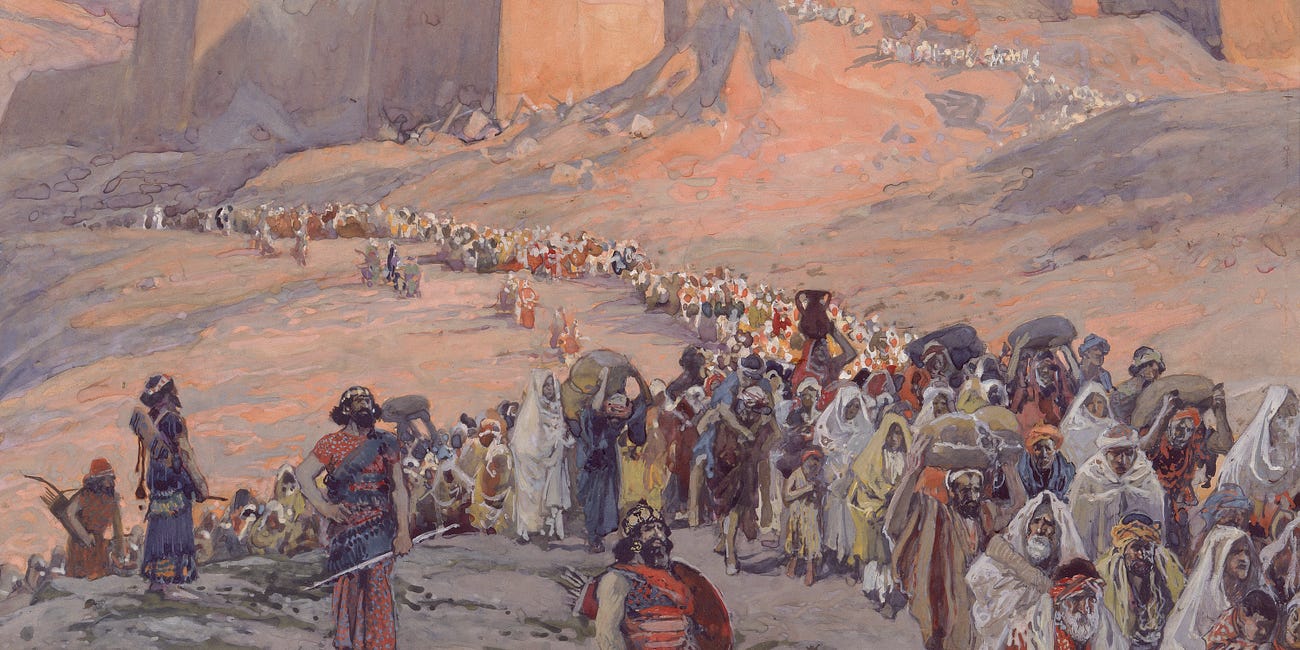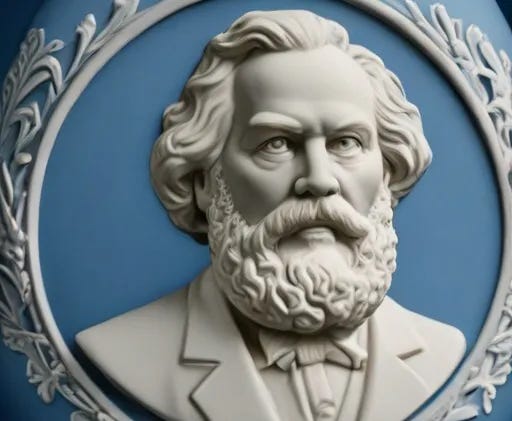Toleration in the history of Christianity
In this series, we cover the history of the concept of toleration in Christianity from, say, Jesus to the Enlightenment. The concept of religious tolerance came to fruition. That would herald other forms of toleration, especially freedom of conscience and political toleration.
This is a long series, because there is a lot to tell. It is therefore useful to keep an eye on the big picture, based on ideas and institutions that gradually took hold.
In the series on toleration in antiquity we talked about pragmatic toleration and about a number of philosophical insights that would form the seeds of the concept of toleration. In the first place, there was room for doubt, perhaps the primal ingredient of modernity that we will gradually end up in. What is knowledge? What is reality?What is morality? And what is justice? Nothing is certain, everything can be doubted. Through dialectics, through a dialogue between opposing perspectives, we can get closer to the truth, Sokrates taught us. We need contradiction, and the will to take each other's perspective seriously, in order to become wiser together. Perikles taught us something else, namely that shared values can bind us. The Athenians were ready to fight, not just because they were told to, to protect the group or to defend their property, but to defend shared values, especially their autonomy and their freedom. The germ of that freedom was developed in classical Athens, namely the freedom to say what you think. And that it is perfectly possible to make decisions in the common interest by giving every vote equal weight. Even if one is more right than the other, or more experienced, or with greater interests. The importance of equality and autonomy receded somewhat into the background under the Romans, but other relevant values were developed in that era. For example, that to err is human. We are often wrong, no one is perfect, we never act completely rationally, we are guided by whims and instincts. It is therefore better not to judge each other too much, to approach each other with mildness and geniality, Cicero in particular claimed. The Stoics felt the same way, but had a slightly different perspective: unpleasant events and nasty behaviour are beyond our control. The only thing we can control is our own reaction to misery that happens to us. Don't get angry, but observe, try to control yourself and let the evil slide off you.
Remarkably many of Jesus' and Paulos' teachings are related to Stoic views. That's not strange. Cicero lived a few decades before Jesus was born. Seneca and Paulos were contemporaries. Both Cicero and Seneca greatly influenced ethical thinking in the Roman Empire, including in peripheral areas such as Palestine, and not just among the Roman elite.
But Paulos and other early Church leaders didn't just have the message of Jesus in their heads. An international Christian community was also unintentionally created. And that was not only possible with charity and forgiveness. Discipline was also required, and a pragmatic approach to power. And that brought tensions. Many of the anti-tolerant tendencies of Christianity stem from this.
Other tolerance-related values and institutions that came to fruition in Christianity:
Individualism
Separation of church and state
Dealing with outsiders: Jews, Muslims, pagans and atheists
How do you deal with different beliefs within Christianity?
I have to put one aside. It is tempting to see history as an inevitable development that could only have gone one way: the current situation as the final chord. But of course it's not like that. It could have all turned out very differently. What we are not doing here is charting the inevitable course of history. What we do is map the genealogy of the current situation: how did we get here?
Before Christ
In this newsletter I will outline the context in which Jesus of Nazareth came to his views. For Jesus was first and foremost a Jewish preacher who never made any attempt to make his views known outside his own people. The applicability of Jewish law was also never in question for Jesus.
Where Jesus' tolerant ideas came from
Opposed to the "zero tolerance" of the God of the Old Testament are the seemingly much milder views of Jesus of Nazareth, an itinerant Jewish teacher who proclaimed disturbing ideas, and ultimately made himself so impossible that he ended up on the cross.
How this contrarian apostle accidentally founded a world religion
There they were, the followers of Jesus. The charismatic leader was dead, executed. The kingdom of God could come at any moment, but what does one do in the meantime? They must have been less than a thousand, the Jewish followers of Jesus. Most of them were in Jerusalem, and presumably some in Galilee. Jesus had twelve assistants around him, including Pe…
No Jewish law for Christians, but what then?
The previous episode dealt with the confluence of circumstances under which the epistles of Paulos of Tarsos became the core of the teachings of the official Roman Christian church. In this episode, we're going to look at Paulos' moral views. Jewish law was out of the question: it only applied to Jews. What applied to rest of the Christian followers?
With blood on their hands and tears in their eyes
The church growing like a weed How Paulos' Christianity managed to grow so quickly in the Roman Empire is still a miracle. How could this orphaned group of supporters of an executed Jewish prophet from a remote corner of the empire grow so fast? With a religion that was in every way the opposite of the ancient Greco-Roman cult of gods?
Christian slavery and the conversion of pagans
Slavery has a bad press, nowadays. I don't think I need to explain the connection with toleration. In this article, we are going to look at the role of the Church of Rome in legitimising slavery and the conversion of pagans. As this article progresses, we come to the church's attitude towards the enslavement of non-Christians from Latin America, India an…
The clean hands of the Church, the dirty hands of the State
An important factor in religious intolerance in Christianity is the traditionally close relationship between church and state. That bond was a bit like yin and yang: intertwined opposites. In the article on heresy we saw that the church fulfilled the role of prosecutor and judge, but left the executioner's work to the state. In this way the church formal…
The just war against Islam
We have already discussed the attitude of the Christian Church towards pagans and heretics. As announced, we are now going to discuss the attitude of the Church towards the people of the book: later the Jews, but first the Muslims.Thanks for reading…
The church disapproves, but allows it
In this series we look at the history of toleration in Christianity. We encountered heretics, and pagans, and Muslims. Now, let’s take a look at how Christianity related to Judaism through the ages. Christianity began with Jewish followers of the Jewish teacher Jesus. But the community really started to grow when ties to Judaism were loosened. The early …
Main and side issues according to Erasmus
Toleration and the Reformation With the Reformation we are approaching a historical tipping point in thinking about toleration. Our contemporary thinking about religious toleration has mainly been shaped as a result of the Reformation. And the ideas about religious toleration gradually led to the application of those principles to freedom of conscience, …
The unyielding Luther and Calvin
This article is about the Reformation and its causes. Luther and Calvin play leading roles. And: how much religious toleration could the reformers muster within their own movements? To reveal the answer in advance: not much. Luther and Calvin were self righteous prigs who could not tolerate contradiction. God and the Holy Scriptures were on their side. …
Religious toleration? No way!
The Swiss psychiatrist Elisabeth Kübler-Ross became famous in 1969 with her five stages of grief and loss: successively denial, anger, negotiating/fighting, depression, and finally acceptance. Empirical research later nuanced this well-known theory, but it is still pretty much established that emotional reactions often play a role in grief and loss. (Bu…
When God's will leads to a civil war
In the previous episode, I explained why religious toleration was unthinkable in the 16th century. Mutual understanding between Catholics and Protestants was a sinful idea. The adversary was the spawn of the devil and had to be exterminated root and branch. Religious division under one monarch was the worst possible scenario.
The prince of Orange's brilliant compromise with religion in the Netherlands
This article is about pragmatic motives for religious toleration in the Netherlands around 1600. In 16th century France, as we saw last time, the debate was mainly about multiple religions in one kingdom. Most people did not like the idea of religious diversity, but the Protestant minority had become so large that oppression seemed impossible. If things …
Religious toleration can be profitable
In essence, pragmatic thinking about religious toleration gradually developed from: The existence of multiple faiths in one country is apparently inevitable. So be it. (France, from 1560). Hey, it actually turns out to work quite nicely (The Netherlands, from 1580)
With the arrival of a comet in 1680, the moral superiority of Christianity vanished
C/1680 V1 is now the name of the comet that flew over Europe in 1680. It was an exceptionally large and bright comet with a long tail, which was also visible in daylight. The Rotterdam painter Lieve Verschuier was an eyewitness; he made a painting of it.
A free conscience: what is it, and how did we get it?
Freedom of conscience is an important topic; I have taken plenty of time to write the following articles. Why is it so important? To put it bluntly, I consider our concept of tolerance to be the crucial issue that sets our civilisation apart from others. And among the manifestations of tolerance (religious freedom, social tolerance, etc.), I consider fre…
The mediaeval conscience was different from ours
In a short series of articles we delve into the origins of the ideal of freedom of conscience in our civilisation. In the previous episode we saw what a conscience is, what it can do for you, and what happens when you try to stretch the boundaries of conscience. We saw how much influence peer pressure can have on our conscience. And that violations of o…
How we got freedom of conscience
Until the 17th century, freedom of conscience was often associated with impiety, immorality, violence and ungovernability. Society had to be protected against heretics, people with terrible ideas, and against religious incitement. But gradually that view changed. In this article, I list how thinkers in the 16th and 17th centuries argued for this change.…
Freedom of conscience as a right
The previous episode discussed the arguments for freedom of conscience, as formulated in the 16th and 17th centuries by thinkers such as Coornhert, Williams, Locke and Bayle. When it came to religious coercion for the sake of peace, morality, salvation, conscience, or the protection of the true faith, the arguments were gradually swept aside.
How we ended up in modernity
England has more beautiful regions than Staffordshire. The landscape of the Midlands is not that inspiring. The industrial city of Stoke-on-Trent is located in the middle. Search online for the city's reputation, and you'll come across terms like "grim" and "the city without hope." The River Trent runs through the town, which deposited red clay in the v…
























